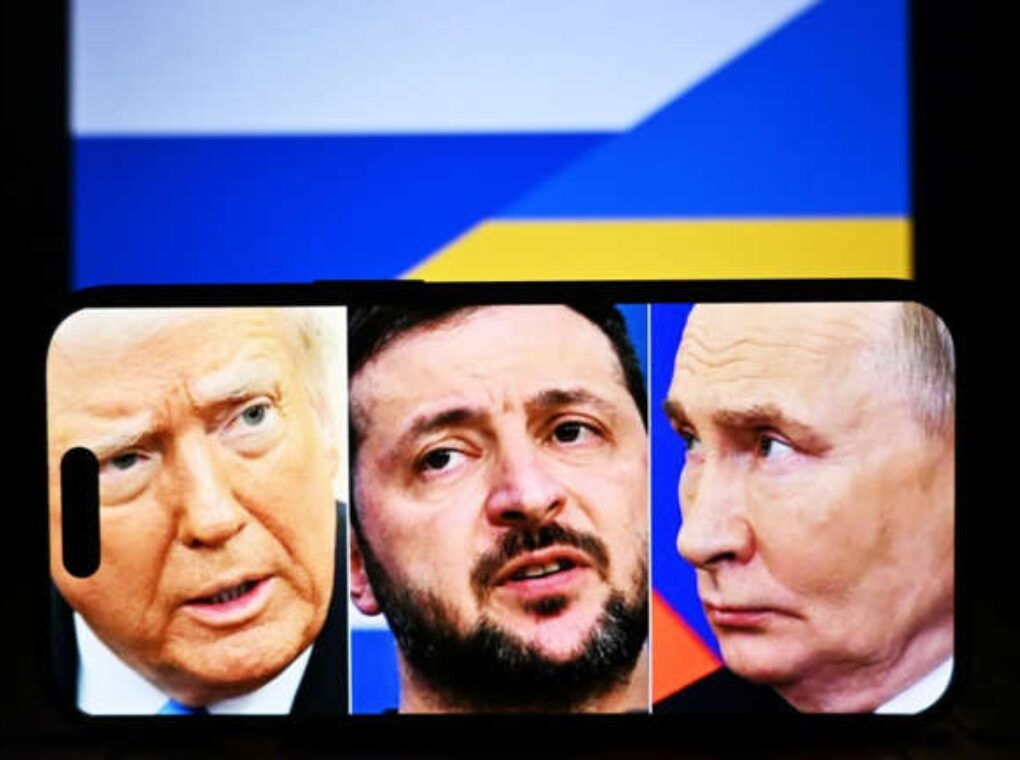For years, Ukraine has struggled with a deeply entrenched corruption ecosystem—one that predates Volodymyr Zelenskyy but has become politically explosive during his presidency. When Zelenskyy rose to power in 2019, he campaigned as the outsider who would break the oligarchic grip over Ukraine. His background as an anti-corruption crusader on television helped project him as a reformer capable of dismantling old networks of money, influence, and patronage.
Yet today, the “corruption clause” debates circulating within Western policy circles, donor networks, and security assistance frameworks have placed Zelenskyy under intense scrutiny. The U.S. and EU—facing taxpayer fatigue and growing skepticism about Ukraine aid—have increasingly pushed for conditionality, demanding transparent oversight and anti-corruption guarantees. These emerging conditions, reforms, and investigative pressures have collectively pushed Zelenskyy onto the back foot, exposing political vulnerabilities at a time when Kyiv can least afford instability.
A Reformist Image Facing Hard Realities
Zelenskyy’s promise was simple: clean up Ukraine. But the war changed everything. Emergency procurement, fast-tracked spending, opaque military contracts, and the rise of wartime intermediaries created fertile ground for misconduct. While Ukraine continues to portray itself as actively fighting corruption, Western auditors and watchdogs have pointed to patterns of:
inflated military procurement contracts
questionable asset purchases by officials
lack of transparency around defense spending
conflicts of interest involving oligarch-linked enterprises
unexplained enrichment within political circles
Even though Kyiv is fighting an existential war, donors fear that wartime urgency is being used by some officials as a shield for irregularities.
The Turning Point: Western Pressure Intensifies
As billions of dollars flow into Ukraine, political leaders in the U.S. and Europe have faced increasing domestic pressure to prove the aid is used properly. This culminated in what many analysts unofficially call the “corruption clause”—a set of oversight conditions that Western governments and financial institutions have tied to further assistance.
Key elements include:
expanded independent auditing
procurement transparency standards
military spending disclosures
anti-corruption benchmarks as prerequisites for loans/grants
strict monitoring by international oversight bodies
For Zelenskyy’s administration, this is a sensitive issue. Publicly, Kyiv frames oversight as normal cooperation. Privately, Ukrainian officials have pushed back, arguing that excessive scrutiny undermines morale and fuels narratives that Ukraine is misusing funds.
But the pressure has had consequences. It has forced resignations, triggered internal investigations, and created fractures within Zelenskyy’s inner circle. Western allies perceive these moves as necessary accountability; critics in Kyiv frame it as political damage control.
Scandals That Have Eroded Confidence
While not all allegations have been proven, several high-profile scandals have damaged Zelenskyy’s image.
Defense Procurement Overpricing
Investigations revealed the Defense Ministry paid inflated prices for eggs, jackets, and basic supplies. Though Zelenskyy replaced the defense minister, the scandal raised questions about oversight during wartime.
The Oligarch Connection Debate
Critics argue Zelenskyy has not meaningfully challenged oligarchic influence. The arrest of Ihor Kolomoisky—once seen as Zelenskyy’s informal patron—sent a strong message but also sparked debate over selective justice.
Local Government Corruption
Reports of bribery, military exemption fraud, and misuse of humanitarian aid have eroded trust in regional governance. While Zelenskyy has dismissed officials, systemic issues persist.
Allegations Around Presidential Allies
Certain political associates have faced investigations or media scrutiny over unexplained wealth or business ties. Even unproven accusations damage Zelenskyy because they contradict his reformist image.
These scandals amplified Western concerns, leading to stricter oversight demands.
The Clash Between Narrative and Reality
Ukraine projects itself globally as a democracy fighting for survival against a larger aggressor—and rightly so. But corruption narratives complicate that messaging. Russia leverages these stories for propaganda. Western skeptics use them to oppose aid. And inside Ukraine, they undermine morale.
What makes the “corruption clause” so politically problematic for Zelenskyy is that it conflicts directly with the foundation of his legitimacy. If he fails to control corruption, critics argue his central promise collapses.
Zelenskyy has reacted by:
dismissing officials
restructuring ministries
pushing anti-corruption reforms
strengthening investigative bodies
But these actions can be interpreted in two ways: as genuine reform or as crisis management under Western pressure.
Why Zelenskyy is Now on the Back Foot?
The pressure is coming from multiple directions:
1. Western Donor Demands
Each round of aid is increasingly tied to oversight. This creates political tension, especially when Ukrainian officials claim some conditions are unrealistic during wartime.
2. Domestic Political Opponents
Parties sidelined during wartime unity now weaponize corruption scandals to challenge Zelenskyy’s competence and credibility.
3. Wartime Fatigue
Ukrainians, exhausted by mobilization, economic strain, and loss, are less tolerant of elite corruption—even perceived corruption.
4. International Narrative Battles
Pro-Russia narratives amplify every scandal, forcing Zelenskyy’s team into constant damage control on the global stage.
5. Internal Fractures
Reports hint at disagreements within the administration over how transparent or cooperative they should be with Western auditors.
Together, these pressures create a situation in which Zelenskyy is constantly responding to allegations instead of shaping the narrative.
The Road Ahead
Ukraine’s fight against corruption is not new, nor will it end soon. But for Zelenskyy, the stakes are unusually high. A war-torn nation dependent on international assistance cannot afford to lose the confidence of its donors. At the same time, Ukraine cannot realistically meet every governance benchmark during an existential conflict.
Zelenskyy must therefore navigate a tightrope—balancing wartime secrecy with demands for transparency, preserving political unity while cracking down on misconduct, and defending Ukraine’s reputation without dismissing legitimate concerns.
The “corruption clause” environment has undeniably placed him on the back foot. Whether he can turn this pressure into genuine reform or whether it becomes a political liability will shape not only his presidency but also Ukraine’s path forward.
